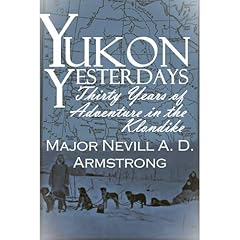
Stikine Wild - The Wilderness Years
Raising a Family in the Canadian Wilderness
No se pudo agregar al carrito
Add to Cart failed.
Error al Agregar a Lista de Deseos.
Error al eliminar de la lista de deseos.
Error al añadir a tu biblioteca
Error al seguir el podcast
Error al dejar de seguir el podcast
 Exclusivo para miembros Prime: ¿Nuevo en Audible? Obtén 2 audiolibros gratis con tu prueba.
Exclusivo para miembros Prime: ¿Nuevo en Audible? Obtén 2 audiolibros gratis con tu prueba.Compra ahora por $4.99
-
Narrado por:
-
Virtual Voice
-
De:
-
Stefan Jacob

Este título utiliza narración de voz virtual
THE PLACE AT THE END OF ALL ROADS
The place at the end of all roads was called Glenora, beside the Stikine River. The dirt road simply ended on the rocky shore of the river. Past that point for hundreds of miles to the south, west and north, there were no roads and no people until the river finally reached Alaska, 150 miles away. It was there and beyond where we lived and raised our family for many years.
In late winter my wife Ann and I, with our four month old baby, Ariana, drove into the village of Telegraph Creek, BC, the most remote community in all of British Columbia, Canada, near Alaska. The town had no electricity, telephone or television, and was 400 miles (700 km) from the nearest supermarket by dirt and gravel road.
At the end of the road in Glenora, twelve miles beyond Telegraph Creek, we left our van by the frozen river and went 17 miles (25 km) further down the river on the ice, to live in a tiny 8X10 foot abandoned log cabin homestead. This is the story of our life in the Stikine wilderness, raising a family of three children, creating our own electricity, growing vegetables for the town, and eventually helping develop a salmon fishery in the Stikine River wilderness.
The in-river commercial fishery created an international conflict between Canada and Alaska, since Alaska didn't want to share the salmon with Canada, though most of the salmon were born in Canada. I represented the Canadian Stikine River fishermen along with a representative from the Tahltan Tribal Council (the local first nation people of the Stikine region) at the salmon treaty talks. Together we helped find a compromise based on co- managing the salmon stocks with Alaska, eventually creating more salmon for both countries. This formed the basis for the Trans-boundry Salmon Treaty.
This book is the story of our personal adventure in the Canadian wilderness. It also tells the largely unwritten history of the conflict between Alaska and Canada over the fishing rights to the salmon spawned in the river, and the future role of the Tahltan First Nation people controlling their own salmon resources. Later I co-managed the commercial in-river fishery with the Tahltan First Nation, which led to many other adventures and an unexpected conclusion.
It is both a personal memoir of our family’s adventure, and a snapshot of that time and place in the history of this remote region of the country.
Las personas que vieron esto también vieron:






